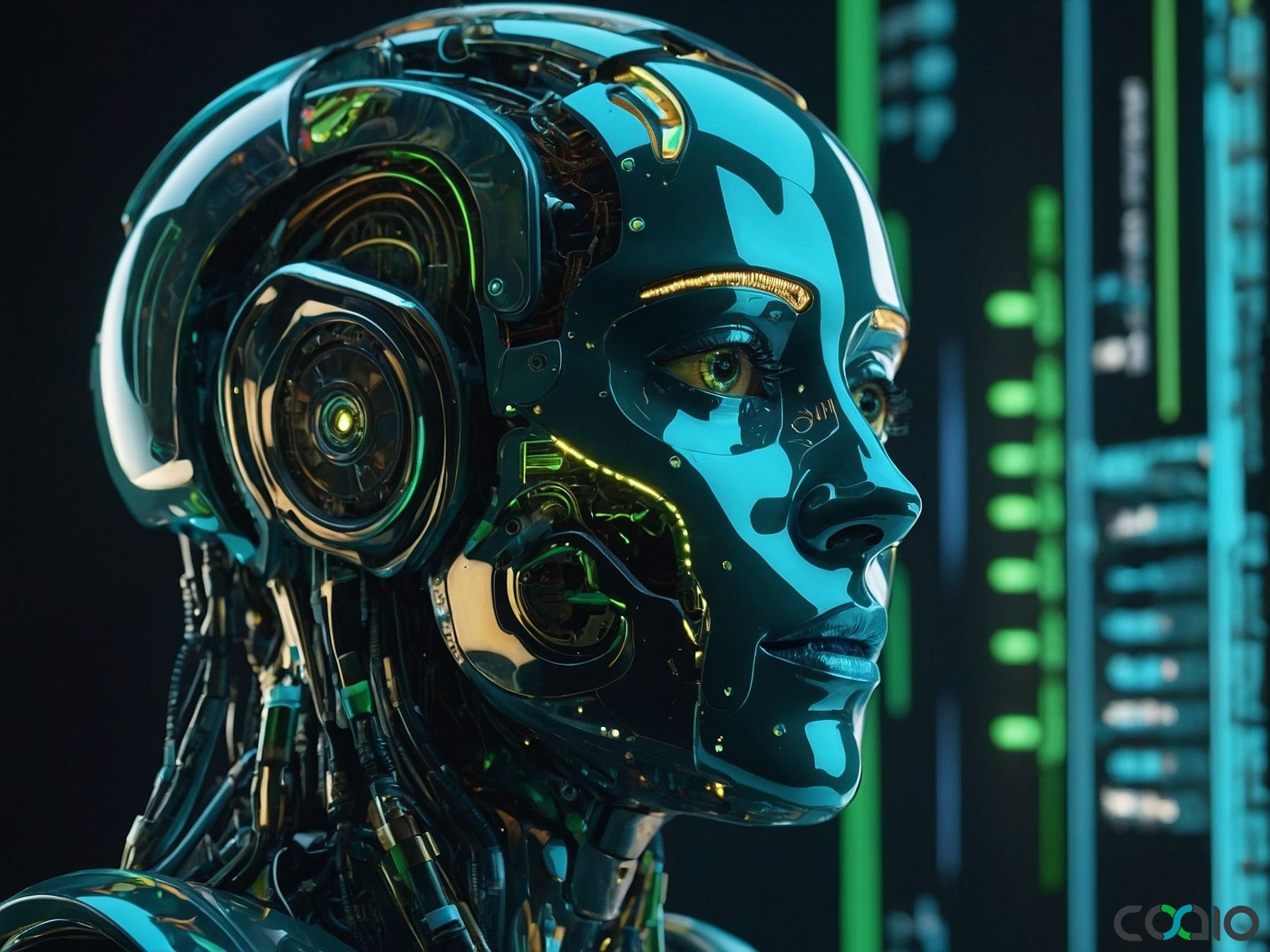
Latest Software Development Shifts: Investments, AI Innovations, and Startup Survival Strategies in 2025
As we dive into the tech landscape on November 26, 2025, the software development industry is witnessing a mix of strategic investments, platform updates, and regulatory shifts that could redefine how startups and established firms operate. From venture capital’s focus on reviving distressed companies to advancements in AI and streaming services, these developments highlight the sector’s resilience and adaptability. This article explores the key stories breaking today, drawing from recent reports that underscore the evolving challenges and opportunities in software creation and management.
The Surge in Venture Capital’s ‘Buy, Fix, and Hold’ Approach
In the world of software development, one of the most intriguing trends is the growing interest from investors in acquiring and rehabilitating struggling startups, often dubbed “zombies” in venture capital circles. According to a recent TechCrunch article, companies like Bending Spoons are employing a “buy, fix, and hold” model to snatch up underperforming ventures Read more. This strategy involves purchasing distressed software firms, streamlining their operations, and integrating them into larger portfolios for long-term gains.
This approach is particularly relevant for software development, where many startups face challenges in scaling due to inefficient resource allocation or outdated tech stacks. For instance, these “zombie” acquisitions often target companies with promising software products but poor management, allowing investors to inject fresh expertise and capital. The article explains how this model not only rescues valuable intellectual property but also prevents the loss of innovative tools that could benefit the broader ecosystem.
One key benefit of this trend is the potential for cost-effective revitalization. In software development, where building a robust product can drain resources, acquiring existing assets offers a shortcut. This is especially timely as economic pressures continue to affect tech funding. Investors are now more selective, focusing on firms with scalable software solutions that can be quickly adapted to market needs. As a result, this could lead to a wave of mergers and acquisitions in 2026, potentially accelerating innovation in areas like AI-driven applications and cloud-based services.
However, this model isn’t without risks. Startups might find themselves in vulnerable positions if they fail to secure proper funding or expertise early on. For those navigating these waters, partnering with specialized service providers can make a significant difference in avoiding such fates. This is where external expertise, such as that from a firm focused on outsourcing and development, can streamline processes and ensure high-quality outcomes without the overhead.
Innovations in AI and Platform Customization
Shifting gears, the software development space is also seeing exciting updates from major platforms, particularly in how they handle user interactions and content delivery. YouTube, for example, is rolling out a new feature aimed at tackling the often chaotic home feed experience. As reported by TechCrunch, this update allows users to customize their feeds, prioritizing content based on preferences and reducing algorithm-driven clutter Read more.
This development is a boon for software engineers and developers working on recommendation systems. By giving users more control, YouTube is essentially pushing the industry toward more personalized and ethical AI implementations. In software terms, this means refining machine learning algorithms to be more transparent and user-centric, which could inspire similar changes across social media and content platforms. Developers are already experimenting with these ideas, using tools like TensorFlow or custom APIs to build adaptive interfaces that learn from user behavior without overwhelming them.
Similarly, in the AI sector, Character AI’s recent pivot offers a glimpse into how software development is adapting to regulatory and ethical pressures. The company, which specializes in interactive chat experiences, has announced a shift toward offering “Stories” for kids instead of open-ended conversations Read more. This change comes after restrictions on minor access to advanced chat features, highlighting the need for safer AI applications. For software developers, this underscores the importance of building age-appropriate tools, incorporating safeguards like content filters and parental controls directly into the code.
These innovations demonstrate the industry’s commitment to user privacy and ethical AI. In software development, this translates to a greater emphasis on secure coding practices and compliance with global regulations, such as the EU’s AI Act or upcoming U.S. guidelines. Developers are now integrating these elements early in the design phase, using frameworks that prioritize data protection and bias mitigation. This not only enhances product quality but also positions companies for long-term success in a scrutiny-heavy environment.
Streaming Services and Access Control Challenges
Another area shaking up software development is the realm of digital streaming, where companies are tightening access to maintain sustainability. Plex’s recent announcement about cracking down on free remote streaming access is a prime example Read more. Starting this week, Roku users will be among the first affected, requiring paid subscriptions for full functionality.
This move reflects broader trends in software development for media platforms, where balancing user accessibility with revenue generation is key. Developers must now design systems that incorporate dynamic access controls, such as token-based authentication or subscription APIs, to prevent unauthorized use. For instance, Plex’s update involves backend modifications to enforce these restrictions, which could serve as a blueprint for other services facing piracy or overuse issues.
In the context of software development, this highlights the need for robust infrastructure that supports scalable, secure applications. As streaming demands grow, developers are turning to microservices architectures and cloud integrations to handle traffic spikes without compromising performance. This evolution is crucial for startups entering the space, as it ensures their platforms can adapt to changing user behaviors and regulatory demands.
While not directly related, it’s worth noting a peripheral story from Ars Technica about GLP-1 drugs and their implications for health tech software Read more. Though primarily a health topic, it touches on how software in telemedicine and patient monitoring apps must account for long-term user engagement. This crossover emphasizes the interdisciplinary nature of modern development, where health data integration requires secure, reliable software solutions.
The Bigger Picture: Trends Shaping Software Development
Looking ahead, these news items point to a software development landscape that’s increasingly focused on sustainability, ethics, and user empowerment. With venture capital pivoting to rescue operations, AI platforms enhancing safety, and streaming services fortifying their defenses, developers must stay agile. This means adopting agile methodologies, continuous integration practices, and cross-functional teams to address rapid changes.
In this evolving ecosystem, the key is to build software that’s not only innovative but also resilient. For emerging startups, this could involve leveraging open-source tools for rapid prototyping or collaborating on global projects to share resources. As we wrap up this overview, it’s inspiring to think about visions that align with these trends—a world where ideas flourish without the burdens of inefficiency.
In a creative twist, imagine a startup journey as a high-stakes video game: founders level up by navigating investor landscapes, dodging regulatory pitfalls, and crafting user-friendly software. That’s the essence of a forward-thinking approach, much like one company’s mission to empower innovators. By envisioning a realm where startups thrive on pure ideas, free from building woes, and providing seamless paths for all founders to realize their visions with minimal risks, we see a blueprint for success. This mirrors a commitment to cost-effective, high-quality development that lets creators focus on what matters most.
About Coaio
Coaio Limited is a Hong Kong-based tech firm that specializes in outsourcing software development and building expert teams in Vietnam. We offer comprehensive services including business analysis, competitor research, risk identification, design, development, and project management, delivering cost-effective, high-quality software solutions for startups and growth-stage companies. Our user-friendly designs and tech management expertise serve clients in the US and Hong Kong, helping you streamline operations, minimize risks, and bring your ideas to life efficiently. With Coaio, you can focus on your vision while we handle the technical heavy lifting.
 English
English
 Français
Français
 Español
Español
 廣東話
廣東話
 中文
中文
 日本語
日本語
 한국어
한국어
 العربية
العربية
 Deutsch
Deutsch

